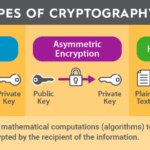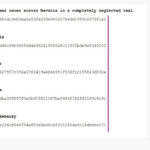In an era dominated by rapid technological advancement, the impending arrival of quantum computers has sparked a fierce debate among cryptographers and technologists alike. As we look towards the future, one must ponder: will quantum computers destroy encryption as we know it? From a Christian perspective, this inquiry extends beyond sheer technological implications; it also touches the very essence of trust, security, and ethical stewardship in the digital realm.
The exponential growth of computing power thanks to quantum mechanics introduces revolutionary potential in various fields, including cryptography. Traditional encryption methods rely on the difficulty of problems, such as factoring large integers, which underpins the security of widely used systems like RSA and ECC (Elliptic Curve Cryptography). However, quantum algorithms, notably Shor’s algorithm, present an existential threat, enabling quantum systems to potentially factor these large numbers in mere seconds. If quantum computers achieve practical functionality, the fabric of encrypted communications could unravel, raising profound moral and ethical dilemmas.
One might ask: how does this bear upon the Christian value of integrity? Integrity is foundational in both our personal interactions and broader societal frameworks. In a world where encryption safeguards sensitive information—ranging from personal correspondence to confidential organizational data—the integrity of our digital communications directly reflects our adherence to Christian principles. This leads us to question, how can one maintain integrity in a potentially unencrypted world invaded by well-intentioned mischief or malicious actors?
Furthermore, consider the analogy of the armor of God, as described in Ephesians 6:10-18. Just as believers are encouraged to be equipped with spiritual armor to withstand spiritual attacks, so too should we be proactive in fortifying our technological defenses. The potential for quantum computing to bypass conventional encryption may necessitate an evolution in our defensive strategies. As stewards of technology, Christians bear the responsibility to advocate for the development of post-quantum cryptography—algorithms designed to secure communications against quantum threats.
However, the discussion does not merely hinge on defense; it also encompasses a broader theological reflection. In the quest for knowledge and understanding, how should Christians navigate the inherent curiosity toward quantum computing? The quest for knowledge, as noted in Proverbs 18:15, emphasizes the importance of acquiring an insightful heart. While technological advancements can be celebrated, they also carry profound ethical implications. Are these advancements fostering a society grounded in mutual trust, or are they sowing seeds of discord?
As we analyze the implications of quantum computing on encryption, one is compelled to consider the balance between security and the ethical management of information. The potential compromise of personal and organizational data may lead to increased vulnerability for individuals and institutions alike. The question arises: what responsibility do we have in ensuring that our digital lives remain secure, especially when access to sensitive information could empower unjust actions?
Stewardship and Christian ethics further invite us to explore the implications of quantum technology on societal inequalities. If quantum computing becomes a sophisticated tool, we must ask: who will wield the power? Will the benefits of quantum advancements be equitably distributed, or will they favor the privileged, exacerbating existing disparities? In an age where information is power, the ethical considerations surrounding access to quantum computing resources become paramount.
Moreover, Christians must grapple with the inherent tension between technological advancement and the preservation of confidentiality. How do we champion personal privacy within a framework that prizes knowledge and transparency? This paradox challenges us to thoughtfully navigate questions of appropriateness regarding data sharing, especially when the strength of our encryption systems may be undermined. The futility of inadvertently exposing sensitive information calls for a proactive commitment to maintaining confidentiality in an age increasingly characterized by surveillance and data breaches.
As we project ourselves into a future with quantum capabilities, Christian communities are called to engage in meaningful discussions focusing on the ethical deployment of quantum technologies. Conferences, forums, and online discussions are crucial as we foresee a re-evaluation of policies governing encryption and data protection. The importance of collaboration between technologists, ethicists, and theologians cannot be overstated. It is a collective responsibility to ensure that advances serve to uplift humanity rather than expose or endanger it.
In conclusion, while the advent of quantum computing poses tangible challenges to encryption, it simultaneously offers Christian communities an opportunity to reflect on broader moral questions. How do we protect what is sacred in a rapidly shifting digital landscape? How do we ensure that our ethical engagement with technology mirrors the principles of justice, honesty, and integrity espoused in scripture? As we stand on the precipice of this quantum frontier, the dialogue surrounding encryption and security must extend beyond technical considerations. It must encompass the Christian imperative to advocate for a more secure, just, and equitable technology landscape, underscoring our theological convictions as we navigate the complexities of the modern world.









Leave a Comment